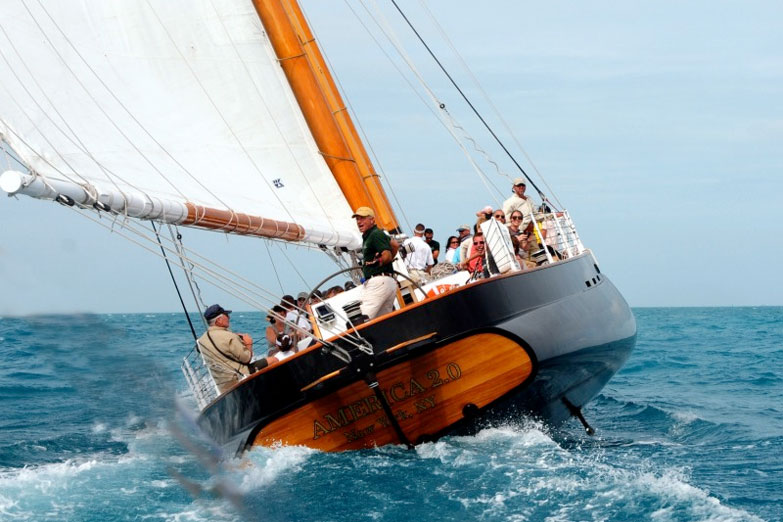eye candy
- Thread starter jon hansen
- Start date
Just finished sanding down the oars for the dinghy for repainting. Wish I'd thought of that!
Is that a transom-hung rudder??

Neat trick.
-Will (Dragonfly)
Me either. I think of scows as being very shallow, with reverse sheer and oblong flat bow with no stem. Those have a definite V bow, transom, normal sheer, and are relatively deep. Like you said, they do look sweet.
While I can't get a good look at the bow in this picture, the Christ Church Sailing Club called them scows. I'm not seeing it.
[...]
-Will (Dragonfly)
jssailem
SBO Weather and Forecasting Forum Jim & John
- Oct 22, 2014
- 23,938
A scow is defined, as far as I know, by its flat bottom and blunt bow.
-Will (Dragonfly)
-Will (Dragonfly)
scow | skou | noun North American a wide-beamed sailing dinghy. • a flat-bottomed boat with sloping ends used as a lighter and in dredging and other harbor services. ORIGIN mid 17th century: from Dutch schouw ‘ferry boat’.

my great great grandfather and then his sons, built and sailed scow schooners out of struge for the second half of the 1800's. 50 ton deck loads, mostly stone. they made money.
a brother and i have an Ascow sailboat to blast around the bay for fun. tradition
still have the captains house, sweet
Last edited:
the story told is that they would build a scow schooner over the winter, 4 months, then sail cargo for the entire season on the lakes, sell the boat at the end of the season, then build a new one the next winter. the family did this for some sixty years. started a quarry too. selling stone, selling boats. they did well for themselves.
The woods supplied the lumber in abundance, skilled workers did the labor, the need to move materials supplied the economic incentive. What a beautiful time. Nothing lasts forever but your family was blessed to live in that area in that time.
they thought so  the bay was teaming with fish and the forest full of game and indians. they traded with the natives, always got along. the well water sweet. in his younger years he was a ships carpenter on tea clippers out of Glasgow. made 2 trips around the world. there were not 150 settlers on the penninsula when he showed up. he got first dibbs on the water frnt property. $0.50 an acre in 1852. when he died he owned about 800 acres of woods , a stone quarry, lime kilms, and a ship building operation. when his kids finally quit sailing, they moved into the steam tug game. they Tugged till the 1940's.
the bay was teaming with fish and the forest full of game and indians. they traded with the natives, always got along. the well water sweet. in his younger years he was a ships carpenter on tea clippers out of Glasgow. made 2 trips around the world. there were not 150 settlers on the penninsula when he showed up. he got first dibbs on the water frnt property. $0.50 an acre in 1852. when he died he owned about 800 acres of woods , a stone quarry, lime kilms, and a ship building operation. when his kids finally quit sailing, they moved into the steam tug game. they Tugged till the 1940's.
Last edited:






